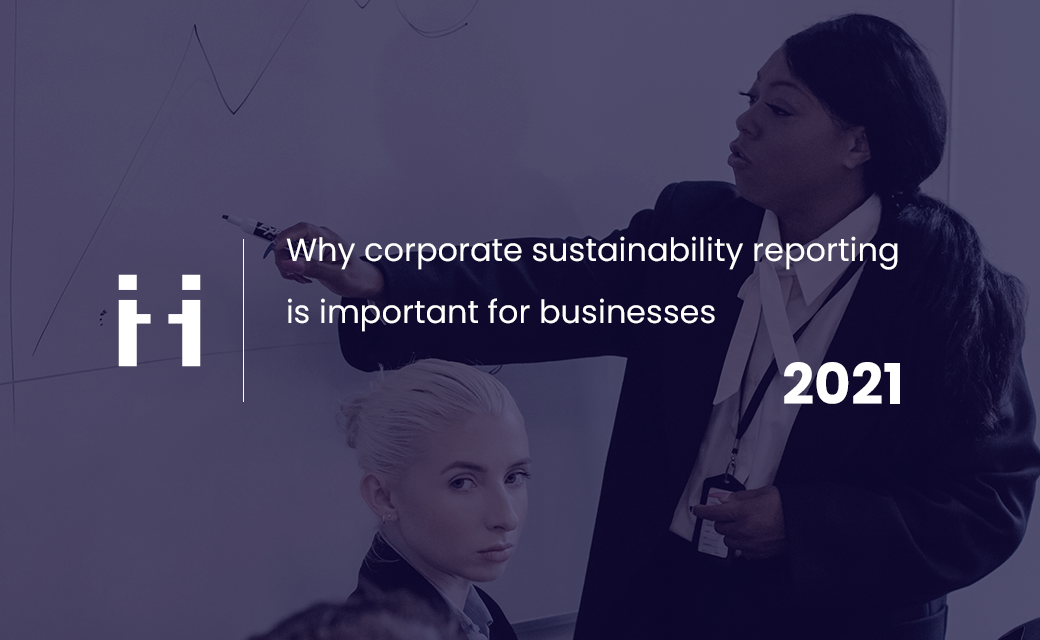
Share this article
Companies are under increased pressure to disclose information regarding their impact on the environment, society, and their performance via corporate sustainability reporting. The EU Directive 2014/95/EU for example (also known as the Non-Financial Reporting Directive) lays down the rules of disclosure related to the sustainability performance and diversity information by certain large companies. Businesses need to monitor, generate and make such information available to the public in a transparent manner.
Corporate sustainability reporting allows businesses to track, generate and measure data related to the contribution of companies towards achieving sustainable economic development. Companies can measure their performance in all sectors of sustainable development including environmental, social, and governance.
Corporate sustainability reporting could be divided into different types depending on the size of the company, areas of operation, and the markets in which the company operates. Large multinational businesses would have sustainability framework standards set up for global businesses, whereas smaller companies could develop their own report based on Key Performance Indicators (KPIs) that are specific to their business. The reporting of smaller organizations would also broadly follow the internationally recognized guidelines and standards for corporate sustainability reporting.
There are various types of corporate sustainability reporting frameworks that companies can choose from. The Global Reporting Initiative (GRI) was started in 1997 by an NGO, the collaboration of Environmentally friendly economies. GRI sets up consistent corporate sustainability reporting standards for companies to voluntarily report on their ESG performance. The International Standards organization (ISO) similarly lays down specific standards for ESG reporting. The ISO 26000 addresses the core areas relating to corporate social responsibility.
Additionally, businesses can also apply for sustainability certifications. Certification is an important aspect of corporate sustainability, wherein organizations would undergo an assessment by a third-party auditor and earn a certificate attesting compliance with the standards. Certifications are tangible means for customers and investors to recognize the organization’s commitment towards ESG goals. The Benefit Corporation (BCorp) certification recognizes that a business adopts a stakeholder approach (workers, customers, suppliers, community, and the environment) wherein it balances purpose and profit.
There are also certain certifications that deal with specific aspects, for example, the Fair-Trade certification implies that producers have been adequately compensated for their produce (fresh fruits and vegetables, coffee beans, tea, cocoa, etc.) and the products have been sourced responsibly. The BCorp and the fair-trade certification have been widely adopted in the United States.

Corporate sustainability reporting is aimed at external stakeholders including governments, customers, NGOs, and other companies. It facilitates interactions and improves communication between the business and other actors.
Moreover, Corporate sustainability reporting allows companies to reaffirm their commitment to their mission and values by measuring their ESG impact and performance. It allows NGOs, societies, and governments to understand the priorities of the organization and work together to create a greener and sustainable future.